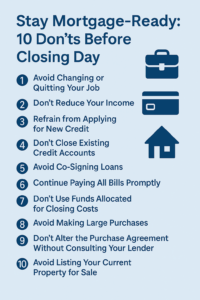Becoming an adult in Canada is confusing.
In B.C., you’re legally an adult at 19 (or as the adults say Age of Majority).
In Saskatchewan and Alberta, you hit adulthood at 18.
In all three provinces, though, you still have no clue how to do your taxes, assemble IKEA furniture, or understand why your parents keep talking about mortgage rates at dinner.
But there’s one part of “adulting” we absolutely should be teaching our soon to be grownups the minute they qualify:
Opening a First Home Savings Account (FHSA).
And here’s the secret parents know (or should):
If your kid opens this account early, even with literally one dollar, their future down payment can start growing today.
Let’s break this down in a friendly, slightly funny, and very real way.
What Is the FHSA? (A.K.A. The Account Your Future Home Will Thank You For)
Think of the FHSA as the government’s way of saying:
“Hey, buying your first home is tough. Here’s a giant tax-advantaged piggy bank to help.”
It’s a special savings account you can open once you reach the age of majority in your province (B.C. = 19, SK/AB = 18).
You get:
-
Tax deductions like an RRSP
-
Tax-free withdrawals like a TFSA
-
Up to $40,000 in contribution room
-
15 years to use the money for your first home
It is, without exaggeration, the best tool young Canadians have for homeownership.
Why Parents Should “Drag Their Kids by the Hoodie (Bunny Hug in Sk)” to Open One Immediately
The FHSA gives you $8,000 of deposit room per year, up to a lifetime maximum of $40,000.
BUT, and here’s the part most people miss, your contribution room doesn’t start until the account is actually opened.
That means:
-
If your 18 or 19 year old opens their FHSA today, they start earning $8,000 of room for this year.
-
If they wait five years…they lose five years of room.
Parents, this is your moment.
You held their hands when they crossed the street.
You held their hands when they learned to skate.
Now, figuratively hold their hand as they open an FHSA.
Even if they open it with a single, lonely toonie they’re in the game.
Tax Benefits (a.k.a. Free Money Without Needing to Win a Roll Up the Rim)
1. Contributions reduce taxable income
Just like an RRSP, every dollar they contribute can be claimed as a tax deduction.
Teens with part-time jobs?
University students working summers?
Young adults in entry-level roles?
This can be a huge boost to their tax refund.
2. Growth inside the FHSA is tax free
No tax on interest.
No tax on dividends.
No tax on capital gains.
More money stays in the account to help build the future down payment.
**3. Withdrawals for the home purchase are completely tax free
This is the magic.
They don’t pay a cent in tax when they take the money out to buy their first home.
That’s like RRSP + TFSA superpowers combined.
How Long Must the Money Be in the Account Before They Can Use It?
Good news:
There is no minimum holding period for the money to qualify for the tax free first home withdrawal.
As long as:
-
They’re a first time homebuyer
-
The home is in Canada
-
They have a written agreement to buy/build within the required window
…they’re good to go.
FHSA vs TFSA vs RRSP (Explained Like You’re 19 and Only Half Listening)
-
FHSA: Best if you know you want to buy a home. Huge tax savings. Biggest long-term benefit.
-
TFSA: Great all-purpose savings. No deduction up front, but tax-free forever.
-
RRSP: Good for retirement and also helps with home buying through the HBP (but you need to pay that back later).
Pro tip for parents & grandparents:
If you want to gift your kid money for their future home, gifting it into their FHSA maximizes the tax advantage.
What Happens If They Don’t Buy a Home?
They can roll the money tax free into their RRSP.
No penalty.
No drama.
No “government clawback.”
Just a smooth transition into retirement savings.
It’s literally win win.
Final Thoughts for Parents and Young Adults
If you’re a young Canadian:
Open your FHSA the minute you turn 18 or 19, depending on your province. Even if you can only put spare change in it, you are getting a head start your future self will be grateful for.
If you’re a parent:
Get involved. Ask questions. Help them open it. Celebrate it like passing their road test minus the insurance bill.
Homeownership is hard, no doubt.
But a smart start today makes a massive difference for tomorrow.

